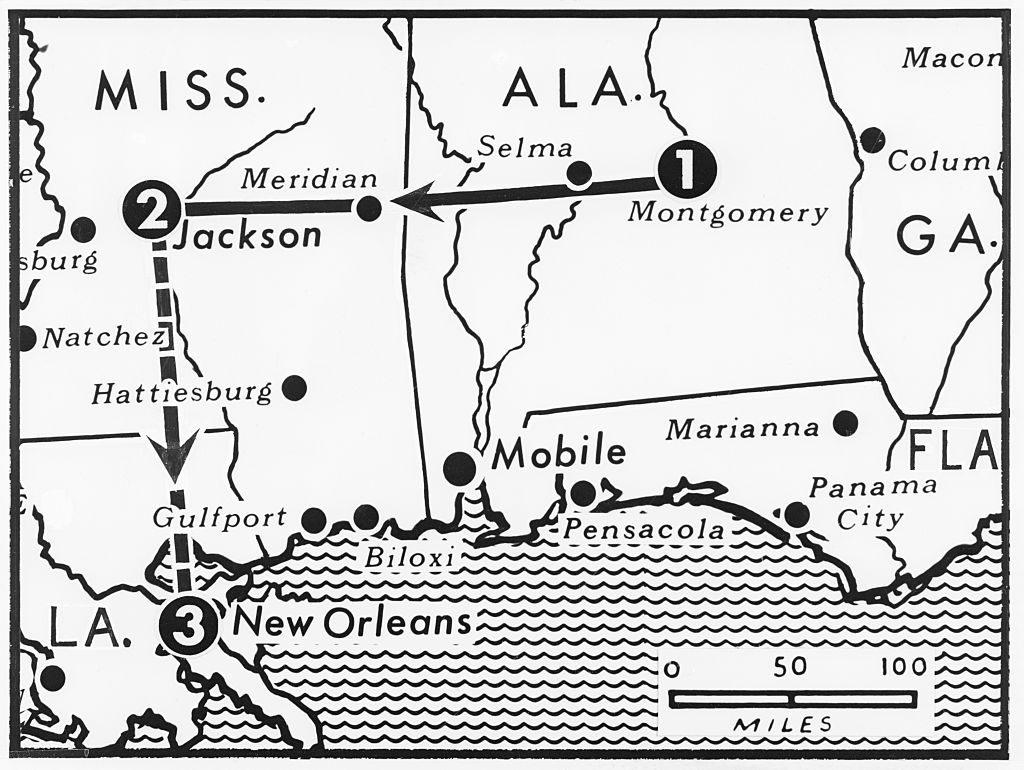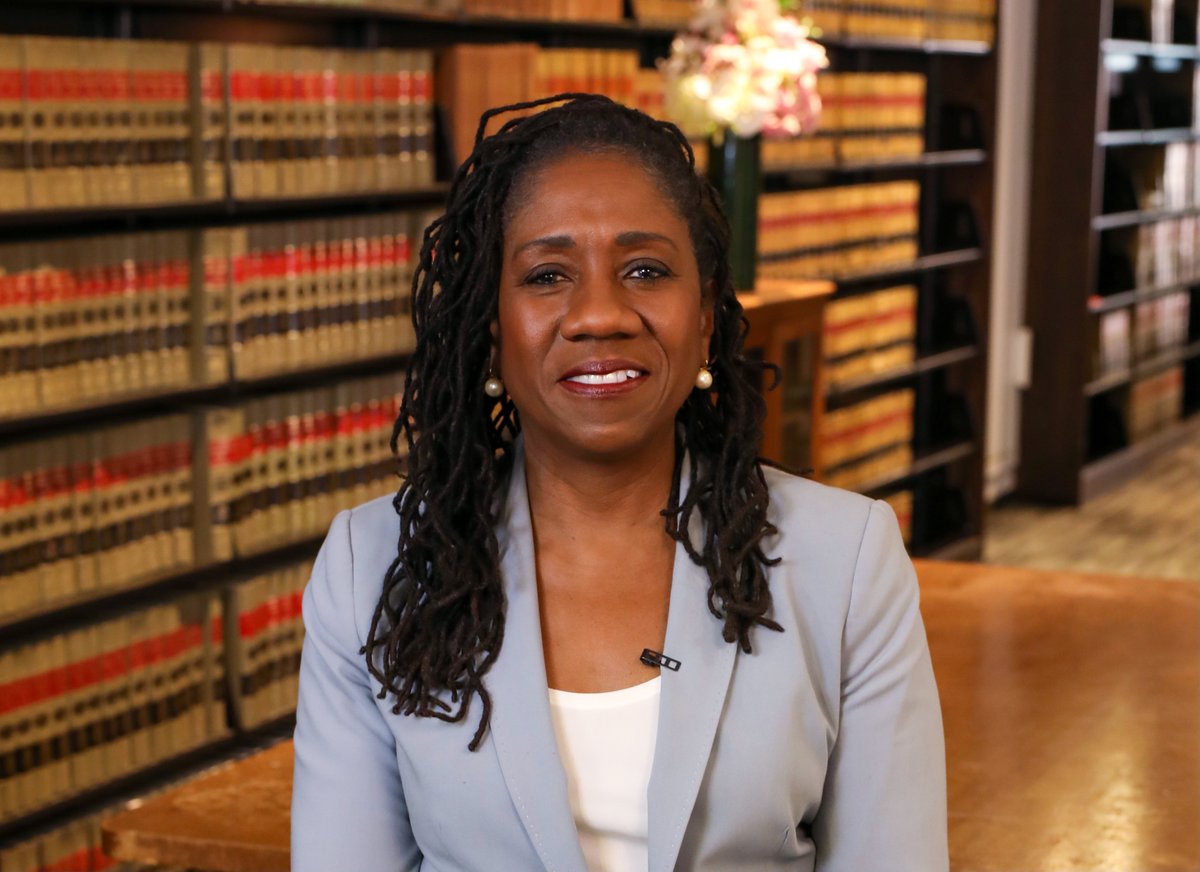🚨Day 4 of the trial to restore #voting rights to people who have experienced incarceration begins now.
LDF's @Jennyhooo & Leah Aden will take the testimonies of 2 brave clients.
Dial-in & access code:
(571) 353-2300;;034872985#
Follow us for live updates.
#JonesvDeSantis
LDF's @Jennyhooo & Leah Aden will take the testimonies of 2 brave clients.
Dial-in & access code:
(571) 353-2300;;034872985#
Follow us for live updates.
#JonesvDeSantis

LDF Assistant Counsel @Jennyhooo has begun taking Ms. Marsha Ellison's testimony. Ms. Ellison has lived in FL for over 35 years, is the elected treasurer of the @FLNAACP, and sits on @NAACP committees.
#JonesvDeSantis
#JonesvDeSantis
.@Jennyhooo: Have you observed economic hardship particular to them as returning citizens?
Ms. Ellison: “Yes..once the individual is released...finding employment can be impossible."
#JonesvDeSantis
Ms. Ellison: “Yes..once the individual is released...finding employment can be impossible."
#JonesvDeSantis
Ms. Ellison: "Voting rights are important to the African-American community because it allows us to...live the American dream."
#JonesvDeSantis
#JonesvDeSantis
Ms. Ellison described the Rick Scott administration's #voting rights restoration process as wrought with barriers and "one that went back to the old rules of voter disenfranchisement."
#JonesvDeSantis
#JonesvDeSantis
.@Jennyhooo : "How successful were returning citizens at restoring their rights during the Scott admin?"
Ms. Ellison: "Very few people had their rights restored..it took away hope because the process was just so daunting."
#JonesvDeSantis
Ms. Ellison: "Very few people had their rights restored..it took away hope because the process was just so daunting."
#JonesvDeSantis
"There are so many families that just simply want to be a part of a system where they can make change."
-Ms. Ellison (@FLNAACP, @NAACP)
#JonesvDeSantis
-Ms. Ellison (@FLNAACP, @NAACP)
#JonesvDeSantis
"We believe that once a person has paid their debt to society they should have the ability to vote." 🗳️
We completely agree, Ms. Ellison!
#JonesvDeSantis
We completely agree, Ms. Ellison!
#JonesvDeSantis
Returning citizens "talk of their struggles of finding housing, of finding employment, of struggling to live.... We knew this [SB 7066] would disenfranchise them for life."
-MS. Ellison, (@FLNAACP, @NAACP )
#JonesvDeSantis
-MS. Ellison, (@FLNAACP, @NAACP )
#JonesvDeSantis
Why is it hard to pay back LFOs?
"When you are faced with paying for the basic necessities of life or paying fines & fees that could make you go hungry or not have a place to live, you'll choose to pay for the basic necessities."
-Ms. Ellison, (@FLNAACP, @NAACP)
#JonesvDeSantis
"When you are faced with paying for the basic necessities of life or paying fines & fees that could make you go hungry or not have a place to live, you'll choose to pay for the basic necessities."
-Ms. Ellison, (@FLNAACP, @NAACP)
#JonesvDeSantis
Ms. Ellison describes the fear that SB 7066 has caused when registering voters. Rather than placing a returning citizen at-risk of going back to prison she has had to register fewer voters.
#JonesvDeSantis
#JonesvDeSantis
Ms. Ellison: "Making sure our community votes is a step that we must take to make sure that our community is treated as first class citizens."
#JonesvDeSantis
#JonesvDeSantis
That concludes Ms. Marsha Ellison's examination by @Jennyhooo .
Up next will be Ms. Rosemary McCoy's examination by Nancy Abudu of the @splcenter at 10:40am EST.
#JonesvDeSantis
Up next will be Ms. Rosemary McCoy's examination by Nancy Abudu of the @splcenter at 10:40am EST.
#JonesvDeSantis
Mr. Bryant makes a $30 monthly payment for court costs to a collection agency just to keep his drivers license. He has never missed a payment, but if he were to he would lose his drivers license and have to pay the full amount to restore it.
#JonesvDeSantis
#JonesvDeSantis
.@johnscusick : "To the best of your understanding do you know the total amount of LFOs you owe to the debt collection agency?"
Mr. Bryant: "I owe approximately $10,600."
#JonesvDeSantis
Mr. Bryant: "I owe approximately $10,600."
#JonesvDeSantis
Why did you register to vote?
Mr. Bryant: "I registered because I feel it’s my time to vote. I have a little boy who never knew the past that I lived. I'm only here to show him the good...I want him to see his dad has come a long way."
#JonesvDeSantis
Mr. Bryant: "I registered because I feel it’s my time to vote. I have a little boy who never knew the past that I lived. I'm only here to show him the good...I want him to see his dad has come a long way."
#JonesvDeSantis
Were you concerned of any consequences if you did cast a ballot?
Mr. Bryant: "Yes I was..
I was scared I would have charges brought up against me... I can't have any more charges. I’m done with that part of my life."
#JonesvDeSantis
Mr. Bryant: "Yes I was..
I was scared I would have charges brought up against me... I can't have any more charges. I’m done with that part of my life."
#JonesvDeSantis
Can you explain why you became a plaintiff in the case?
Mr. Bryant: "I would really like my rights restored. I would really love to vote. I would love my vote to count. I would love my voice to be heard."
#JonesvDeSantis
Mr. Bryant: "I would really like my rights restored. I would really love to vote. I would love my vote to count. I would love my voice to be heard."
#JonesvDeSantis
"I’ve become a regular person. I’ve left all my foolishness behind me, it’s time for me to be heard. It’s time for people to see the change in me. It’s time to see that people can be changed...I believe I have accomplished that."
-Mr. Curtis Bryant, LDF client in #JonesvDeSantis
-Mr. Curtis Bryant, LDF client in #JonesvDeSantis
It would take most people decades post-release to fully pay off LFOs. Mr. Bryant's examination by @johnscusick made it abundantly clear that SB 7066 serves as addt'l punishment for crimes long after they've been rectified.
Trial will resume at 12:30pm EST⏲️
#JonesvDeSantis
Trial will resume at 12:30pm EST⏲️
#JonesvDeSantis
.@NAACP_LDF Deputy Director of Litigation Leah Aden is now beginning examination of Dr. J. Morgan Kousser.
He will speak to SB 7066 & why certain provisions were motivated by a racially discriminatory purpose.
Dial-in & access code:
(571) 353-2300;;034872985#
#JonesvDeSantis
He will speak to SB 7066 & why certain provisions were motivated by a racially discriminatory purpose.
Dial-in & access code:
(571) 353-2300;;034872985#
#JonesvDeSantis
The state of FL objected to Dr. Kousser's testimony and requested that his testimony be struck from the record.
Judge Hinkle has overruled that objection.
#JonesvDeSantis
Judge Hinkle has overruled that objection.
#JonesvDeSantis
According to Dr. Kousser's analysis the FL legislature was "very well aware that trying to find out the all of the LFOs of returning citizens was a bureaucratic nightmare."
#JonesvDeSantis
#JonesvDeSantis
"The terms within #Amendment4 were not clear...It was not clear what the completion of a sentence meant." -Dr. Kousser
#JonesvDeSantis
#JonesvDeSantis
"The legislature had that report available to it when it started considering the various bills that became #SB7066.
They knew that people who were experts in the subject were unclear about what 'completion of the sentence' meant."
-Dr. Kousser
#JonesvDeSantis
They knew that people who were experts in the subject were unclear about what 'completion of the sentence' meant."
-Dr. Kousser
#JonesvDeSantis
"Most voters would not have seen that legal wording in the text..the ballot summary talked about completion of the sentence, no comma, including parole & probation. It did not explicitly talk about any LFOs..It’s important to see exactly what was presented to the voters."-Kousser
Dr. Kousser researched news articles related to the search term ‘felon voting’ to discover what definition for ’whole sentence' would have been available to FL voters.
Out of 55 articles, 2 referenced payments of LFOs within that definition.
#JonesvDeSantis
Out of 55 articles, 2 referenced payments of LFOs within that definition.
#JonesvDeSantis
"I counted as explicit references to 'prison,' articles that contained the phrase 'served their time' because clearly 'served their time' does not refer to completing your LFOs...but I think 'served their time' to the vast majority of people who refer to prison." - Kousser
"Someone reading that article would not have had a thought to whether LFOs were required as a result of #Amendment4… Because it was left open. It did not support the proposition that the State had no discretion & had to pass #SB7066." - Dr. Kousser
#JonesvDeSantis
#JonesvDeSantis
"I thought that the evidence was ambiguous as to what voters intended & what was presented to the voters on #Amendment4.
I thought [the FL legislature] had discretion as to whether or not they would pass an implementation bill and if they did what it would contain." -Dr. Kousser
I thought [the FL legislature] had discretion as to whether or not they would pass an implementation bill and if they did what it would contain." -Dr. Kousser
"The legislature had discretion & knew at the beginning of the legislative session that it did.
[The memo] on #Amendment4 asked, “when should rights be restored--at the end of the sentence after a prison term or after restitution has been paid?” - Dr. Kousser
#JonesvDeSantis
[The memo] on #Amendment4 asked, “when should rights be restored--at the end of the sentence after a prison term or after restitution has been paid?” - Dr. Kousser
#JonesvDeSantis
Dr. Kousser describes how certain legislators introduced amendments that would've cut the LFO requirement.
"All of those amendments would have meant that more returning citizens would have been able to register to vote & they were all defeated."
#JonesvDeSantis
"All of those amendments would have meant that more returning citizens would have been able to register to vote & they were all defeated."
#JonesvDeSantis
According to Dr. Kousser, the high number of proposed amendments undercuts the notion that the Legislature itself was completely sure about the meaning of the provisions within #Amendment4.
#JonesvDeSantis
#JonesvDeSantis
Leah Aden: "Did the FL legislature define LFOs in a crystal clear, consistent manner over the course of the 2019 leg session?"
Dr. Kousser: "No."
#JonesvDeSantis
Dr. Kousser: "No."
#JonesvDeSantis
"The people who opposed the bill [SB 7066] thought that these were not very efficacious procedures--that they would not lead to very many more people being eligible to vote." - Dr. Kousser
#JonesvDeSantis
#JonesvDeSantis
What did the felony disenfranchisement numbers look like prior to #Amendment4?
Kousser:"Approx. 20-25% of African-Americans in FL were disenfranchised because of felony convictions & approx. 10% of all Floridians were disenfranchised due to felony convictions."
#JonesvDeSantis
Kousser:"Approx. 20-25% of African-Americans in FL were disenfranchised because of felony convictions & approx. 10% of all Floridians were disenfranchised due to felony convictions."
#JonesvDeSantis
Dr. Kousser: "Rep. Grant was explicitly told the racially discriminatory impact of a bill that would make it difficult for returning citizens to vote. He said explicitly that he did not want to know the impact of the bill."
#JonesvDeSantis
#JonesvDeSantis
Kousser reviewed 53 rejected bills introduced by Black legislators to amend SB 7066.
He states, "It is difficult to think that there are non-racial reasons for turning down all of the bills."
#JonesvDeSantis
He states, "It is difficult to think that there are non-racial reasons for turning down all of the bills."
#JonesvDeSantis
With the conclusion of cross-examination by the defense, day four of the historic #JonesvDeSantis trial has ended.
• • •
Missing some Tweet in this thread? You can try to
force a refresh















